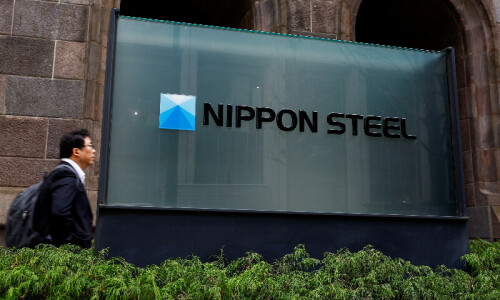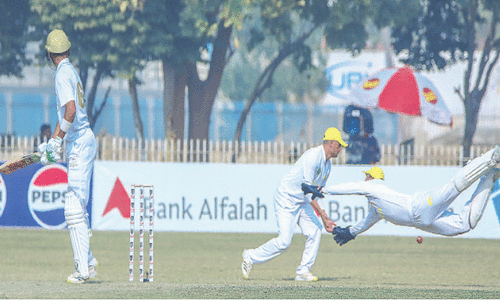IT takes a lot for a party worker to occupy centre stage in Pakistan. The species thrives only when a situation is at its most precarious.
PML-N heir Maryam Nawaz recently appointed a lawyer to defend a party worker arrested in Gujranwala. Mr Waleed Asif Butt was accused of uploading material against the prime minister, army chief and some Supreme Court judges on Facebook.
The arrest raised many questions, not the least of which surrounded the insufficient public awareness of what a fair comment is, at what point it becomes unfair and, indeed, what constitutes a crime. There was also the question of whether the various political parties — like other organisations with legions of fans and followers swearing allegiance to them — do enough to warn their workers about where to stop.
There is a certain kind of boldness about how we Pakistanis speak now, compared to a past when so much value was attached to saying things subtly or euphemistically. Individuals today are frequently spurred on by a new wave of openness, displayed in no small part by so many — including the highest office holders in the land, considered worthy of the utmost respect both by convention and under the law. These individuals do not realise they have crossed the line until the moment they are pulled off.
They may have the hereditary licence to take the fight to the streets, but do they have their parties and workers ready?
The kind of muck that is thrown around on social media these days would, under normal circumstances, alert parties to the need to provide their workers some guidelines to work within. But then the gains made by their infantries far outweigh the occasional arrest of an over-sentimental worker for going a bit too far.
The parties know very well the worth of using trolls to pursue a target. And perhaps it is the desire to not ‘unnecessarily’ discourage these social media warriors that prevents politicians from disowning a worker, or progressing in any way towards developing a code of conduct.
The rise of the internet warrior has been problematic in the sense that it can and does make the leader even more negligent about the worker in the conventional mode. There has always been a complaint about politicians’ lack of will to build parties and their cultures around the nucleus of a properly nourished worker.
The workers’ cadres that ceaselessly populate the internet with their instant potential can, and possibly do, create a grand and rather unqualified impression in the mind of a politician about his or her powers. This is a dangerous illusion to have at all times. In moments when a politician is threatening to launch a visible street protest, an overreliance on this virtual brigade could lead to some shoddy planning of the advance against the target.
This has been asked repeatedly, ever since the Maryam Nawaz and Bilawal Bhutto-Zardari combine raised the spectre of some kind of a joint push against the PTI government: they may have the lineage and the hereditary licence to fight for power and more, but do they have the party, and do they have the worker ready?
The PML-N watchers you talk to are very categorical in their dismissal of the party as a dynasty that has little room for your old-thinking, struggling worker with an ideology beyond the desire for Sharif supremacy. Many tongues are engaged in its defence in its Lahore and Punjab strongholds, but they do not belong to the worker in the classical sense.
These defenders of the ‘party cause’ are often those who have their current interests interwoven with those of the PML-N leadership — such as the councillors born of the PML-N’s local government system, who were all but eliminated by the recent PTI masterstroke of introducing a new local body system in Punjab. These elements make quite a lot of noise; creating or adding once again to the sense of the PML-N’s large-scale presence in the province, and helping the leadership shirk its basic responsibility of nurturing and training their workers to keep them battle-ready.
Meanwhile, Ms Nawaz’s partner in the hitherto undefined campaign against the government is making a more visible effort to lift the party in Punjab — if purely out of compulsion. Mr Bhutto-Zardari actually has no cadres to speak of, those before him having spent all the human capital the party had gathered over decades.
In the event of any protest movement launched by the opposition, the PPP will have quite a lot to do to save its reputation as a popular mobiliser from being totally destroyed. Not only will it be closely watched for signs of strength and weakness by those it is aiming at, as always happens in an alliance, the PPP’s contribution to any street power show will inevitably be compared with the impact made by the PML-N’s share in it.
The PPP may have great expectations of its drive to reorganise the party, which has led to steps such as this Wednesday’s nomination of new office bearers for the People’s Youth Organisation and People’s Students’ Federation. However, when and if the call for agitation comes, unless something dramatic happens, the PPP will most likely be condemned to play second fiddle to the PML-N in their anti-government campaign.
This is a new for Punjab politics. It’s been a while since the PPP lost its moorings in the province and moved helter-skelter in a desperate search for allies to lean on.
Acting as the second lead in an opposition alliance pitted on the road against a government — this is something the PPP has never done in all its years of existence. It has always led these moves. The emerging equation is to the advantage of the PML-N, the old adversary. The old-timers will find it impossible to reconcile to Mr Bhutto-Zardari’s supporting role in Punjab. They would be happier if he continued in the same way as just before the 2018 election — leading the search for the new worker in the Punjab heartland, very visible atop a truck.
The writer is Dawn’s resident editor in Lahore.
Published in Dawn, June 21st, 2019












































